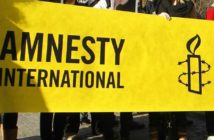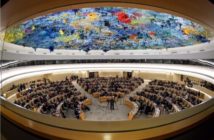MAP
New York – Moroccan national human rights council (CNDH) presented on Thursday Morocco’s unique experience of transitional justice which stands out from other countries’ models for being the result of reforms started in early 90’s.
The justice and reconciliation commission established in 2004 to look into past cases of serious human rights abuses was the fruit of a long process of reforms started in early 90’s and consolidated in early 2000, said CNDH member Naima Benwakrim in New York.
The CNDH member was speaking during the launching of the practical transition, justice, truth and reconciliation guide in the French-speaking space, an initiative of the International francophony organization, Morocco’s permanent delegation to the UNO and the office of the UN Secretary General special advisor for genocide prevention.
Unlike other countries, she went on, Morocco’s experience was not aiming at peace establishment as Morocco was not in war. It was not either a process to rebuild the state’s structures as the country had already started its gradual reform process and had already ceased non-democratic practices and serious human rights violations, she explained.
The process was also made possible by the conjunction of the will of decision-makers, civil society activists and victims of serious human rights abuses, she argued before noting that gradual and cross-cutting integration of the gender approach in all of the justice and reconciliation committee proceedings and all along its mandate.
The ceremony chaired by Morocco’s permanent delegate to the UN, Mohamed Loulichki, in his capacity as president of the group of francophone ambassadors in New York, took place in the presence of top UNO officers, including deputy-secretary general, Adama Dieng, and ambassador Filippe Savadogo, permanent observer of the international francophony organization to the world body in New York.






